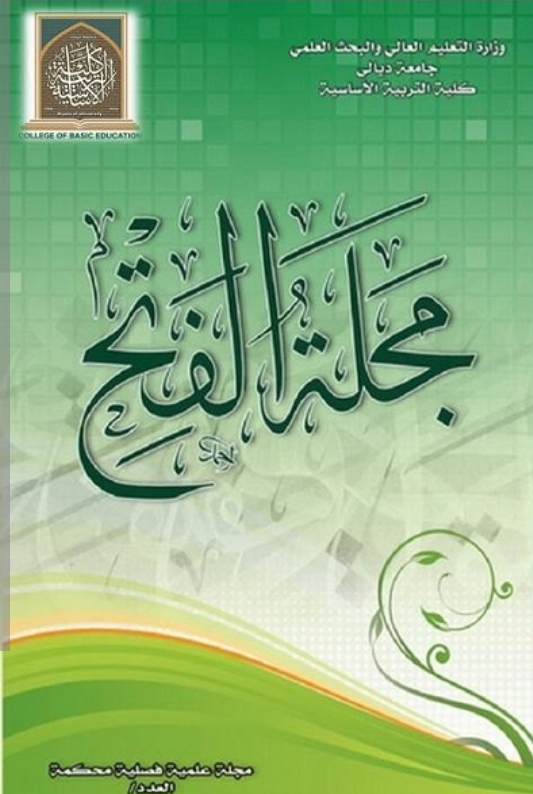Argued strenuously in the position of Imam Abu Hanifa in the modern
Abstract
Praise be to God, Lord of the worlds, and prayers and peace be upon the master of the first and the last and the seal of the prophets and messengers, our master Muhammad and his family and companions altogether, and the imams who diligently in the religion, and the working scholars and those who follow them with kindness until God inherits the earth and whoever is on it and He is the best of the inheritors. And after... God Almighty honored the children of Adam from among His creation, and made them His successors on earth, and He sent messengers to them with glad tidings and warnings to bring them out of darkness into light, and He sent down to them a book that falsehood does not come to from before it or from behind it, guiding them to the truth and to a straight path, and made They have the Sunnah of His Messenger as an explanation for His Book. Once Muslims hold fast to them, they will never go astray. The Messenger of God, may God’s prayers and peace be upon him, used to legislate judgments based on what emerges from events and what comes down from calamities, and judges between the disputants by the Book of God first, and if he does not find it, then by what God has seen, because God Almighty says: God) . This was a method drawn by the best of blessings and peace be upon him for everyone who takes charge of people’s affairs and takes care of their interests after him, especially the scholars, because they inherited him in knowledge, guidance and reform. The best prayers and peace be upon him says: (...the scholars are the heirs of the prophets. They did not inherit a dinar or a dirham. They only inherited knowledge. Whoever takes it takes an ample share.” If they do not find in the Book of God or in the Sunnah of His Messenger, then they issue fatwas according to what their diligence leads to without contradicting what came in them. And the Messenger of God, may God’s prayers and peace be upon him, approved this kind of deduction during his lifetime when he sent Muadh bin Jabal, may God be pleased with him, to Yemen as a ruler. It was reported that the Messenger of God, may God’s prayers and peace be upon him, when he wanted to send Moadh to Yemen, he said: Judgment?” He said, “Do I judge by the Book of God?” He said, “If you do not find it in the Book of God?” He said, then in the Sunnah of the Messenger of God, may God’s prayers and peace be upon him. That is, I do not fall short in ijtihad (The Messenger of God, may God’s prayers and peace be upon him, struck his chest and said, “Praise be to God, who has guided the Messenger of God to what pleases the Messenger of God”), and it is the same approach followed by the Rightly Guided Caliphs; on the authority of Maimoon bin Mahran, he said: (Abu Bakr, when the opponent responded to him, looked In the Book of God, if he finds in it something to judge between them, he judges according to it. That is with a decree, so perhaps all of them gather to him. He mentions from the Messenger of God, may God’s prayers and peace be upon him, in it a judgment, and Abu Bakr says, “Praise be to God, who made among us those who protect our Prophet, for his fatigue is to find in him a Sunnah from the Messenger of God, may God’s prayers and peace be upon him. on an order that he decreed). It is also the will of our master Omar, may God be pleased with him, to his workers on the cities; Shuraih reported that Umar ibn al-Khattab wrote to him: “If something comes to you in the Book of God, judge according to it, and do not let men distract you from it. The Messenger of God, may God’s prayers and peace be upon him, then look at what the people have agreed upon, and take it. If something comes to you that is not in God’s Book and did not contain the Sunnah of the Messenger of God, may God’s prayers and peace be upon him, and no one spoke about it before you, then choose which of the two matters you like. You are late, and you are late, and I do not see delay except as good.”
Downloads
Published
How to Cite
Issue
Section
License

This work is licensed under a Creative Commons Attribution 4.0 International License.
حقوق النشر والترخيص
تطبق مجلة الفتح للبحوث التربوية والنفسية ترخيص CC BY (ترخيص Creative Commons Attribution 4.0 International). يسمح هذا الترخيص للمؤلفين بالاحتفاظ بملكية حقوق الطبع والنشر لأوراقهم. لكن هذا الترخيص يسمح لأي مستخدم بتنزيل المقالة وطباعتها واستخراجها وإعادة استخدامها وأرشفتها وتوزيعها ، طالما تم منح الائتمان المناسب للمؤلفين ومصدر العمل. يضمن الترخيص أن المقالة ستكون متاحة على نطاق واسع بقدر الإمكان وأن المقالة يمكن تضمينها في أي أرشيف علمي.
لمزيد من المعلومات، يرجى متابعة الرابط: https://creativecommons.org/licenses/by/4.0/.



